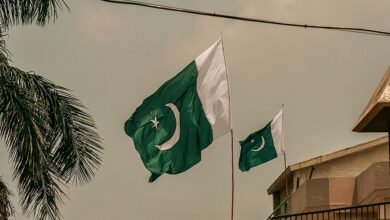"I Curse the River of Time" by Per Petterson, translated from Norwegian by Charlotte Barslund (Graywolf 2010).
Norwegian author Per Petterson’s last book, “Out Stealing Horses,” put him on the map as a writer, and this new volume is an equally enjoyable book about the trials of a mother/son relationship. Reviewer Bob Thompson writes, “The stubborn mysteries of family conflict are his subject, and he evokes them in a voice whose straightforwardness belies its subtlety.”
Petterson knits together important scenes from protagonist Arvid Jansen’s life with his mother–finding out she has cancer, confessing to her his plans to join the Communist Party–and also tells the story of Jansen’s marriage, creating a full portrait of the book's central character. Readers might be interested to know that Petterson himself, while not confessing autobiographical elements in the story, calls Jansen a “soul mate.”
“Churchill's Empire: The World That Made Him and the World He Made” by Richard Toye (A John Macrae Book/Henry Holt & Company. 2010)
Reviewer Johann Hari calls this new history, which explores the dual legacy of Winston Churchill, “superb” and “unsettling.”
Historian Richard Toye addresses what Hari sees as recognizing and possibly reconciling the opposing natures of the British statesman, who might have opposed German-style fascism on the one hand, while supporting a British brand on the other: “Can these clashing Churchills be reconciled? Do we live, at the same time, in the world he helped to save and the world he helped to trash?”
Although many accept Churchill’s racism and nationalism as a product of his time and not his character, Toye does a good job of proving this was not the case: “[…] even at the time, Churchill was seen as standing at the most brutal and brutish end of the British imperialist spectrum.”
Toye’s focus on Churchill’s conduct toward India is most revealing. The following quote is just one of a seeming trove of evidence of Churchill’s brutality: “I hate Indians. They are a beastly people with a beastly religion.”
How can we reconcile Churchill’s disdain for those he trampled on in the name of Britain, with his seemingly noble fight against the Nazis? “Was his moral opposition to Nazism a charade, masking the fact that he was merely trying to defend the British Empire from a rival?”
Toye “beautifully” discusses the tensions and contradictions in Churchill’s policy and character, and the book is both a “repudiation,” and a “victory.”
“Denial: A Memoir of Terror” by Jessica Stern (Ecco. 2010)
Terrorism specialist and Harvard professor Jessica Stern’s memoir about the effect being raped at gunpoint as a child has had on her life is, according to reviewer Marie Arana, “powerfully constructed.”
A departure, certainly, from Stern’s previous books on terrorism, the link between spending a life “spying on violent men” and the horrific details of the crime are probed, in both the recounting and the analysis.
Psychiatrists might apply the term “post-traumatic growth” to Stern. As opposed to “post-traumatic stress,” it refers to the “wisdom” and “acute antennae” the victim of a violent act might attain as a result of the trauma.
Professionally at least, Stern seems, against the odds, to have been able to use the event to sharpen her perspective on the less-visible world of terrorism, but Arana comments that “according to Stern, the curse of rape–which she strips to its root–is that it teaches you to feel less and less of the world around you.”
"Freedom" by Jonathan Franzen (Farrar, Straus & Giroux. 2010)
A new novel from the author of “The Corrections,” according to Michiko Kakutani, completes Franzen’s “own transformation from a sharp-elbowed, apocalyptic satirist focused on sending up the socio-economic-political plight of this country into a kind of 19th-century realist concerned with the public and private lives of his characters.”
This change, seemingly successful, might also be why Franzen is currently gracing the front cover of Time Magazine, above the words “Great American Novelist.”
Since the beginning of his career, Franzen has, according to Kakutani, wanted to “write a Big American Novel that might capture a national mind-set, and this novel is no exception.”
But the real success of “Freedom” is Franzen’s ability to write complete characters who seem real and important, characters worthy of conveying whatever is meant by the “national mind-set.”




